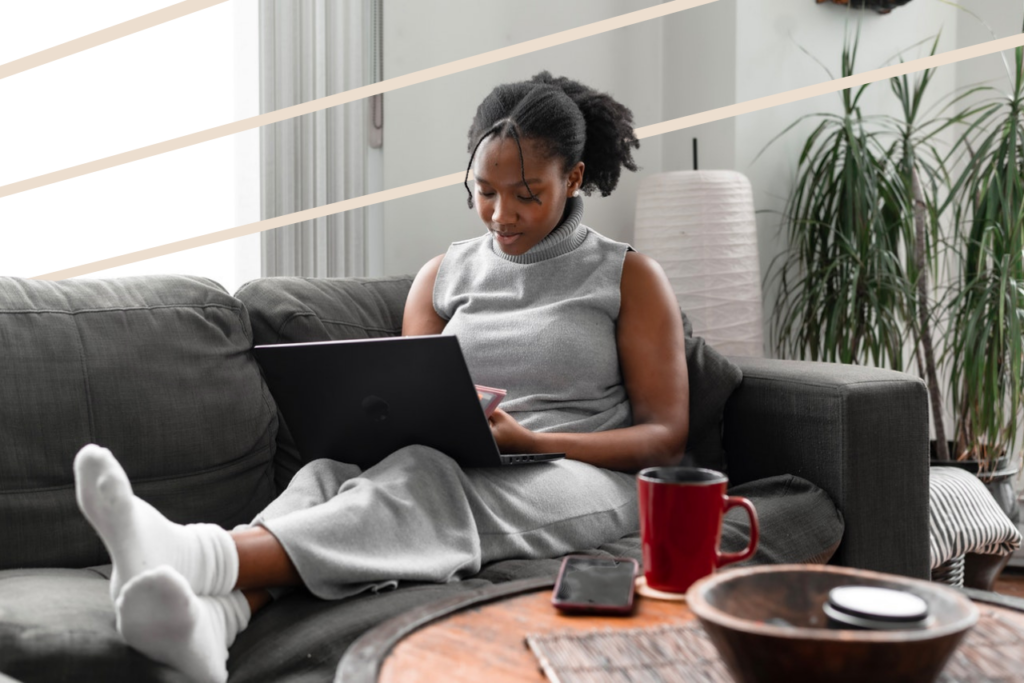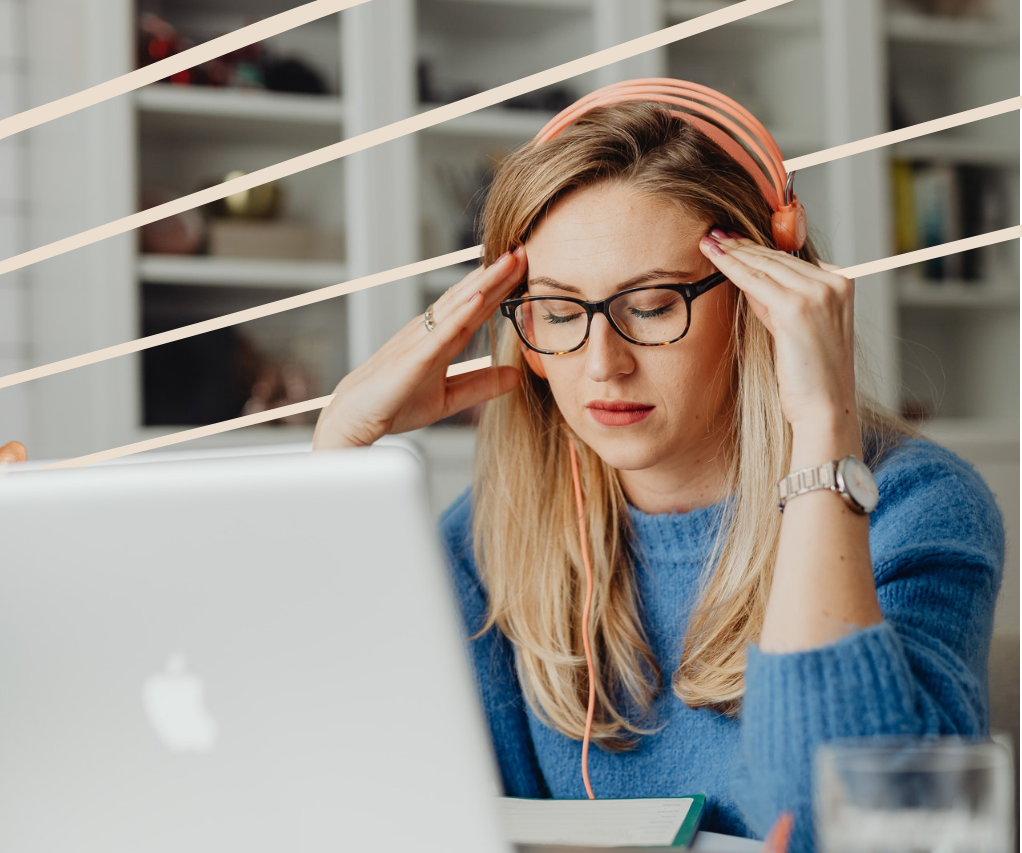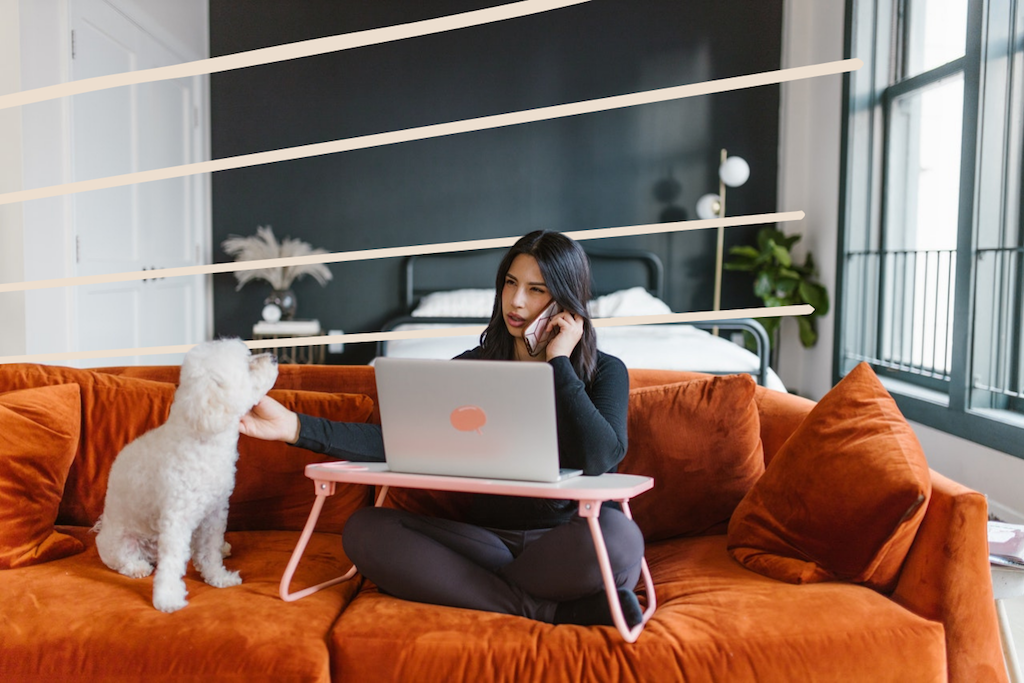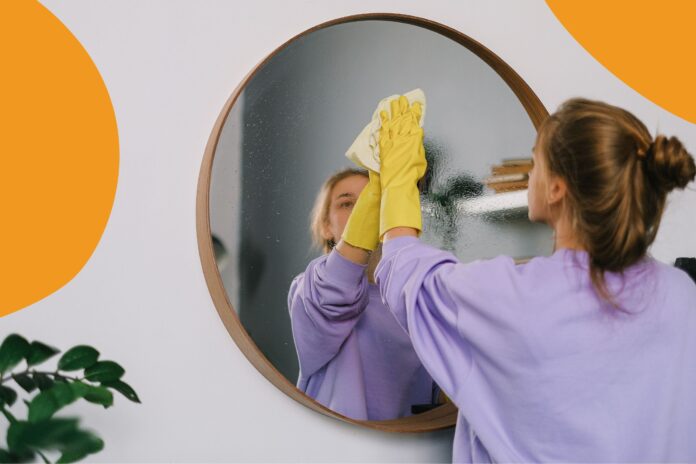Though the governments of England and Scotland recently lifted their guidance to work from home, many Brits are continuing to do so remotely, with 21% of the workforce saying they had worked exclusively from home in a survey conducted by Sky in January 2022.
That’s a whole lot of laptops still being perched precariously on ironing boards, with all the shoulder hunching, neck straining and eye squinting that goes with it. Indeed, working from home, whilst undoubtedly a positive for many people’s wellbeing, does present some challenges in terms of health.
Polling by the Royal Society for Public Health revealed that of those who had switched to home working as a result of COVID-19, nearly half of the respondents reported doing less exercise, with over a third also saying they had developed musculoskeletal issues and 37% reporting disturbed sleep. All that considered, the survey also revealed that a whopping three-quarters of respondents said they didn’t want to return to the office full-time, with the vast majority favouring a form of hybrid working.
Which begs the question; how does the UK’s home workforce make working from home work for them? An ugly collection of words, we accept, but here’s how to ensure that working from home isn’t damaging your health in 2022.
POSTURE
Sorry to keep quoting statistics at you, but here’s another; a study published in August 2020 found that neck pain had worsened in half of all home workers over the course of the pandemic. And it’s not just our necks that are suffering from our less-than-ergonomic desk set-ups. Back complaints are also on the rise, and rather than drag up the results of another study, we’d just ask you to consider yours for a moment… Hurts, doesn’t it?
Fortunately, there are ways to banish bad posture and mitigate the worst effects of working at the kitchen table/on the bed/sitting on the toilet. These include requesting the same ergonomic equipment (a chair with lumbar support and a headrest, a screen with adjustable monitor, a mouse with wrist support…) from your employer, as well as warming up and down before and after work, and taking regular breaks to avoid both tech neck and eye strain. Speaking of which….

EYES
Have you noticed a deterioration in your eyesight or eye health since home working came into play? You’re not alone; a leading UK eye-health charity, Fight for Sight, revealed in January of last year that more than one in three people in the UK had reported suffering from worsening eyesight due to increased screentime during the pandemic.
Aside from simply spending more hours squinting into the harsh blue light of screens, the nation’s eye health could be suffering for several other reasons, too. These include computers not being at the correct height or distance (at eye level, and between 50cm and 100cm from your eyes, if you’re asking) and a general decrease in eye examinations and check-ups due to COVID-19 related closures and restrictions.
But visiting your optician regularly (once every two years is recommended) for routine eye examinations is essential now things have opened up again. Aside from checking your eyesight and potentially updating your prescription, doing so will allow for the early detection of diseases that include Glaucoma and Macular Degeneration.
As the eye surgery specialists at Optimax point out, ‘’Nearly 1.5 million people in the UK suffer with macular disease, and 600,000 of these people have age-related macular degeneration (AMD).’’
Often this can go undetected, but early diagnosis and treatment may help stop your vision from getting worse. While laser eye surgery can be a beneficial treatment for various eye conditions, it is important to note that it cannot cure macular degeneration. Laser treatments can help manage the symptoms and slow the progression of the disease, but they do not offer a cure.
When considering laser eye surgery cost, this emphasises how regular eye examinations and early detection are even more crucial, as timely intervention can significantly impact the quality of life for those affected by macular degeneration.
Read: 7 ways to prevent digital eye strain

SEDENTARY RISKS
As if the usual 9 to 5 wasn’t sedentary enough, it does feel like working from home takes things to a whole other level.
We think it’s fair to say that the blurring of boundaries between work and home have also impacted our step count and heart rate negatively. That daily walk to the tube stop, that stroll in the park on your lunch break, that trip to the gym on your way home from work… Working from home has certainly brought the risks of staying still into sharp focus.
For those not currently focusing, increased physical inactivity ‘’increase all causes of mortality, double the risk of cardiovascular diseases, diabetes, and obesity, and increase the risks of colon cancer, high blood pressure, osteoporosis, lipid disorders, depression and anxiety’’, according to the WHO.
To avoid being sedentary when working from home, there are a few proactive steps you can take. Firstly, and perhaps most obviously, you should make efforts to move around regularly during the day. Try setting a reminder or alarm on your phone, to prompt you to get up from your chair and walk around the house every hour (most smartwatches will do this for you, by the way).
On a similar theme, why not mimic your commute each day, taking yourself out of the house before and after work, and having a stroll around the block. This thing is gradual and incremental, after all. You could also invest in a step-counter (again, smartwatches are ideal for this) to ensure you’re getting your 10K a day.
Finally, should your office have previously provided perks in the exercise department, such as a gym membership or exercise classes as part of your contract, do make sure that’s still on offer, even if you’re working in the home office now.

DEHYDRATION
Water… It’s perhaps the only true elixir of life, and brings so many benefits to the compulsive consumer. Indeed, keeping hydrated is crucial to keeping healthy and fit, and we should all be aiming for 8 glasses by 8pm as a bare minimum.
But without those trips to the office water cooler to discuss last night’s TV or gossip about the latest workplace transgressions, it can be all too easy to forget to drink.
How about including an hourly reminder (along with your cue to get up and move around) to drink water? Not only will this help to keep you switched on and better able to concentrate, but it could also keep headaches and eye strain at bay, too. You can even defer those reminders to a specially designed hydration tracker in app form, which keeps tabs on your consumption and prompts you to drink more.
Alternatively, you could go analogue, and simply fill up a jug of water or water bottle in the morning and keep it on your desk all day, in your line of sight.
Read: 6 ways to take control of your health
OVERWORK & STRESS
Though the majority of homeworking Brits have suggested that doing so has been good for their mental health, that blurring of the boundaries between work and home can lead, in many cases, to us toiling for longer hours at our computers than we would have at the office. Without the ceremonial shutting down of our computer and leaving the physical office, our working day runs and risk of stretching long into the evening, leading to stress and burnout.
Not only will this harm your health, but it could also be hurting your productivity. In other words, nobody wins from you working too hard. Rather than hypocritically keeping you here, staring into a screen for too long, we’ll redirect you to these suggestions on ways to de-stress after a tough day at the home office. Bookmark it for another time, and go have yourself a walk!





